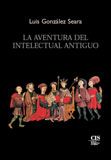


The emergence of ancient intellectuals is linked to the invention of writing as a requirement of civil and religious administration, expressed first in rudimentary accounting boards. At the dawn of history appeared the scribe who monopolized the written word. In cultures of the Near East, a leisure class of priests and scribes laid the legitimating foundation of the dominant political system. In Israel, ecstatic prophecy developed, whereas it did not in Egypt or Mesopotamia. The intellectual development of the Hebrew prophets would open the doors of Western ethical rationalism, the prelude to the figure of the critical intellectual. In Greece, Western intellectuality becomes real, with the poet and the sophist as the first prototypes of the European spirit. After the revolution carried out by Socrates and the sophists, the schools of philosophy represented by the Academy and Lyceum were home to the figures of the philosopher and the scientist, symbolized by Plato and Aristotle. On the other hand, in the major Eastern cultures of India and China, the intellectual is developed through the two types of Brahmin and Mandarin, which correspond to different conceptions of the link between religion and political power. The adventure of ancient intellectuals already moves between legitimation and criticism of power.
Links:
[1] http://217.160.225.169/node/194
[2] http://217.160.225.169/node/192
[3] mailto:cis@cis.es
[4] http://www.cis.es